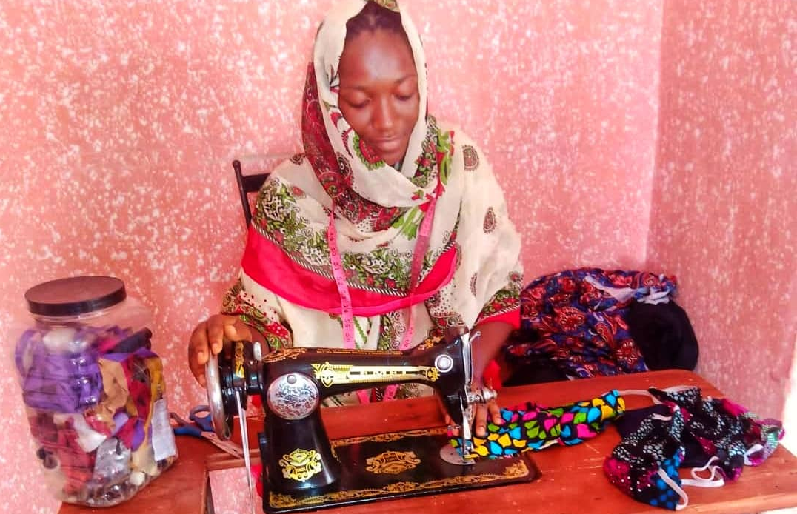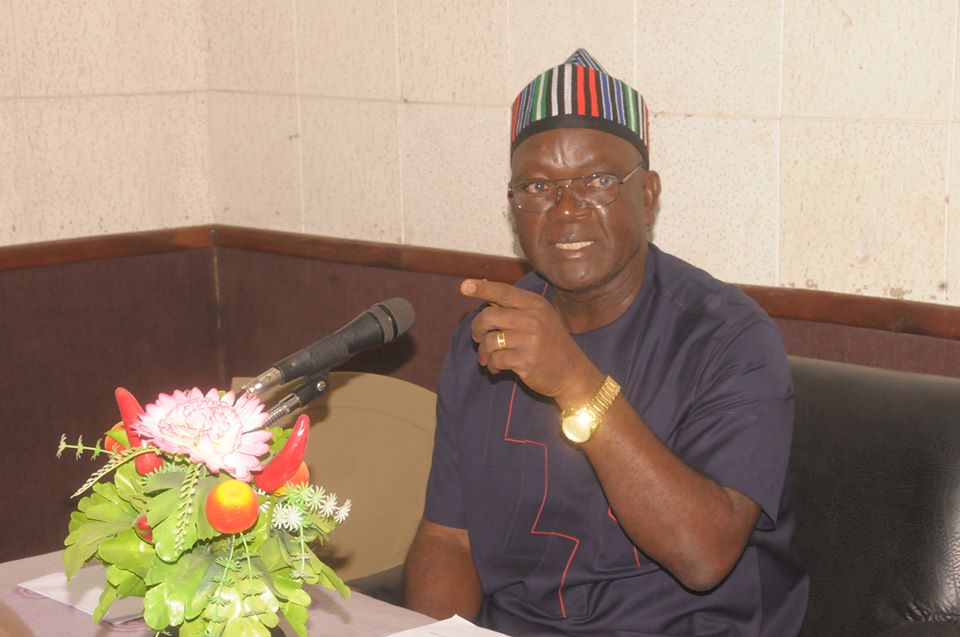For fashion designers, Eid el-Fitr is a season they look forward to as it creates the opportunity to smile to the banks. Referred to as “small Sallah”, the end of Ramadan calls for celebration and tailors are among those who harvest the gains. In the past, some of them got so busy during this period that they worked overnight to meet up with the demands of their clients. But the coronavirus pandemic, which has crushed economies across the world, is taking a toll on them, and those who used to sew cloths are now involved in the production of face masks.
As part of measures to limit the spread of COVID-19, the federal government made the wearing of masks in public places compulsory. In fact, Akin Abayomi, commissioner for health in Lagos, recently advised those who live in crowded houses to wear masks while at home. One would have assumed that with the policy of compulsory wearing of face masks would make tailors rake in funds but most of them have said they prefer making clothes to face masks.
TheCable visited some fashion design stores in Lagos and those affected by the ban on religious gatherings spoke on the economic effects of the disease, which originated in China. Kehinde Abiodun, a designer at Vanskere fashion company in Ikeja, said patronage has been poor.
“This pandemic has really affected business because the production of wears is no longer effective. There has been less patronage from our customers, which is unusual at this period of Ramadan. Nothing is going out and coming in. We are just stranded,” he said.
Advertisement
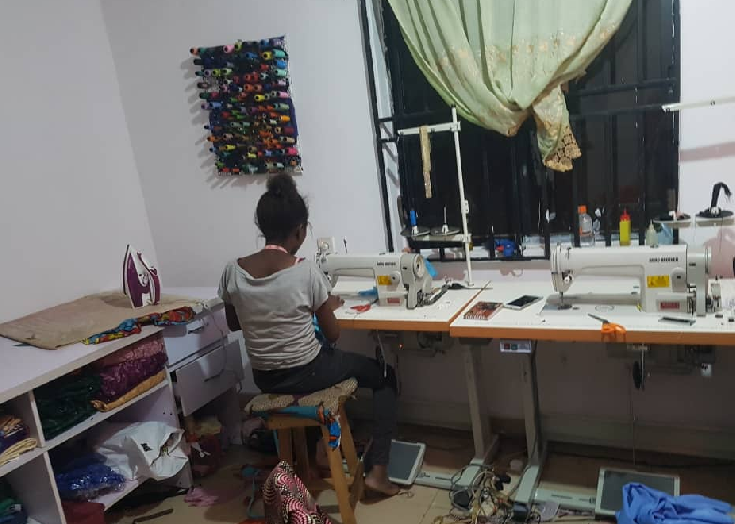
A tailor sewing masks
“The company had to shortlist staff members going to work and even some fashion companies in Lekki and other major areas are yet to resume because they are scared of the pandemic and they have to protect the lives of their staff members. The only thing most fashion companies are sewing now is face masks because there is no social gathering, churches and mosques are not operating, and many people are not working at full capacity due to the restriction of movement.”
Advertisement
Some fashion designers even said making masks is becoming harder as a result of the scarcity of rubber, one of the items used for its production. Adeyemi Faith, founder of Faith Fashion Design in Alimosho local government area, said the material is now scarce to purchase thereby making it difficult to sew more masks. He said the fashion industry is among the worst hit during the pandemic as customers now care less about looking good in order to manage the meagre financial resources they have.
Like Faith, Aishat Olatunji, a fashion designer at T.M. Fashions in the Igando area of the state, said coronavirus has affected the fashion industry with respect to the purchase of materials as well as customers’ patronage.
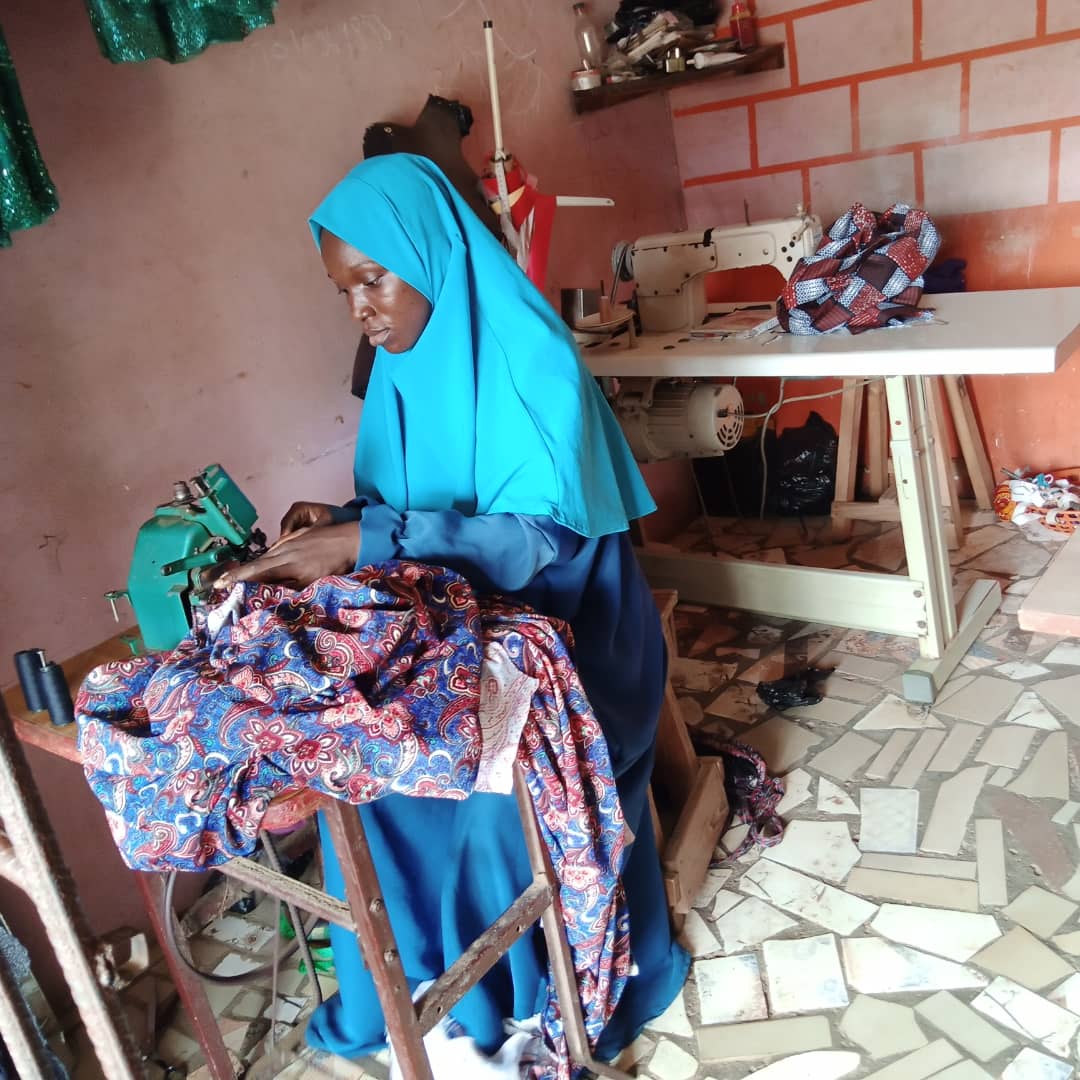
According to her, the cost of sewing materials has been inflated, leading to higher charges on customers’ wears. But she lamented that “people are not willing to even sew at all for now since there is no party, no outing, and no celebration of Eid.”
“It has really affected us, unlike the previous year when we sewed till daybreak, especially a few days to the Eid celebration just to meet up with customers’ demands. But this year, there is a total change of story as we haven’t received more than five cloths so far and customers that were contacted said they need to get foodstuff rather than clothes. It is really bad but we just have to cope. I know how much I would have made during this celebration but COVID-19 has changed the story negatively,” she said.
Advertisement
RAM SELLERS ALSO COUNTED THEIR LOSSES
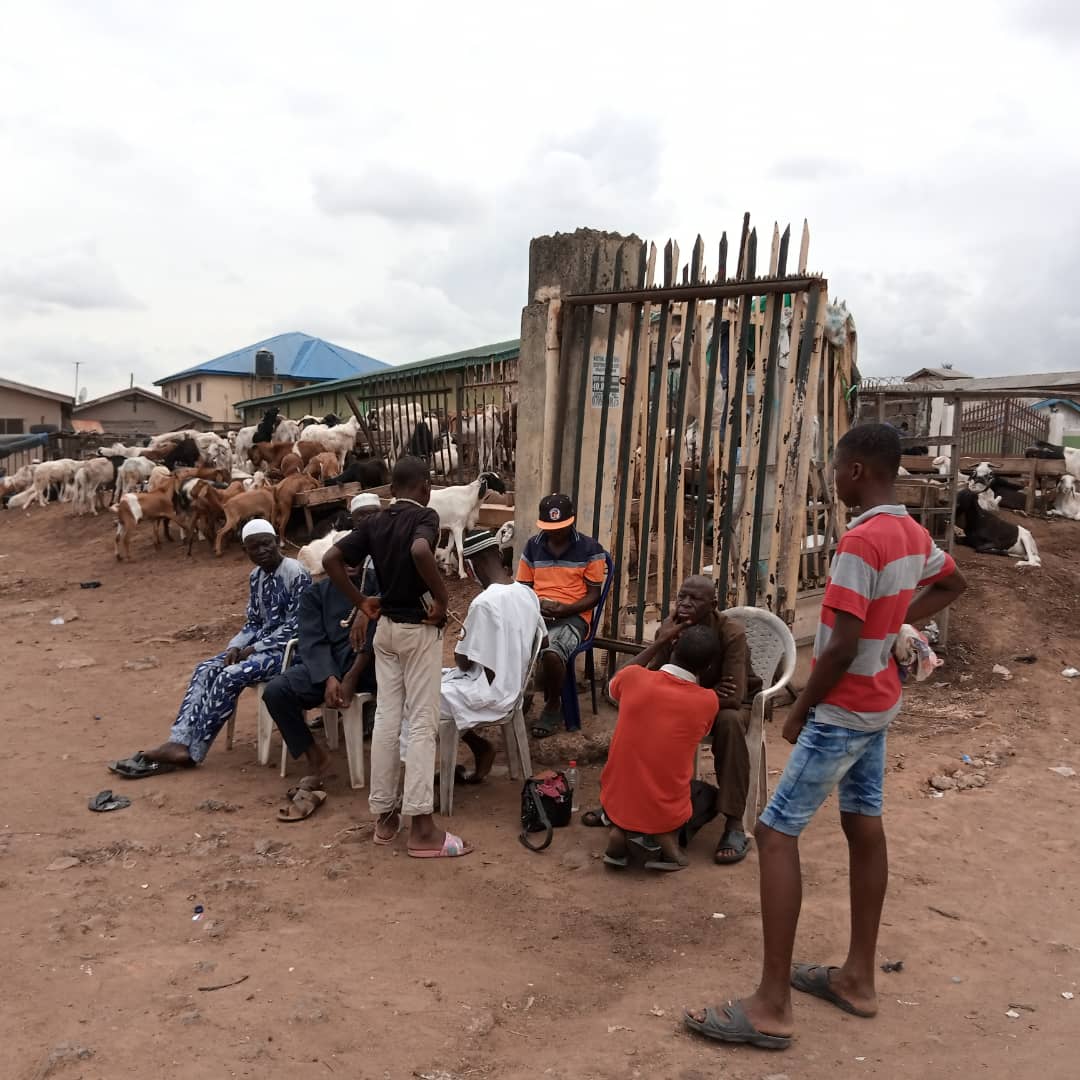
The fashion designers are not alone. Hassan Ibrahim, a ram seller in Ikotun, sat on a wooden brick waiting for customers when TheCable met him on Thursday afternoon. Around him were about 15 rams eating from the large wooden crate of food placed in their midst. Ibrahim waved at the reporter, thinking he is a prospective buyer.
When the reporter approached him and shared his intention, Ibrahim, whose face facial expression showed he was disappointed, explained that sales had been poor as people were complaining of lack of money.
“People are saying “ba kudi, ba kudi” (no money, no money). As of this time last year, I had finished selling my rams and I already ordered some more. There was money so the market was good. Now people are managing to buy rams. Like three people will buy only one ram, they will then share it among themselves and take to their families. Before, only one person can buy three rams but now it is a case of three people on one ram,” he said.
Advertisement
Like Ibrahim, other sellers of rams, goats and cows decried poor sales at a period known for sales boom. Abubakar Muhammed, another seller, said sales in 2019 was better compared to this year.
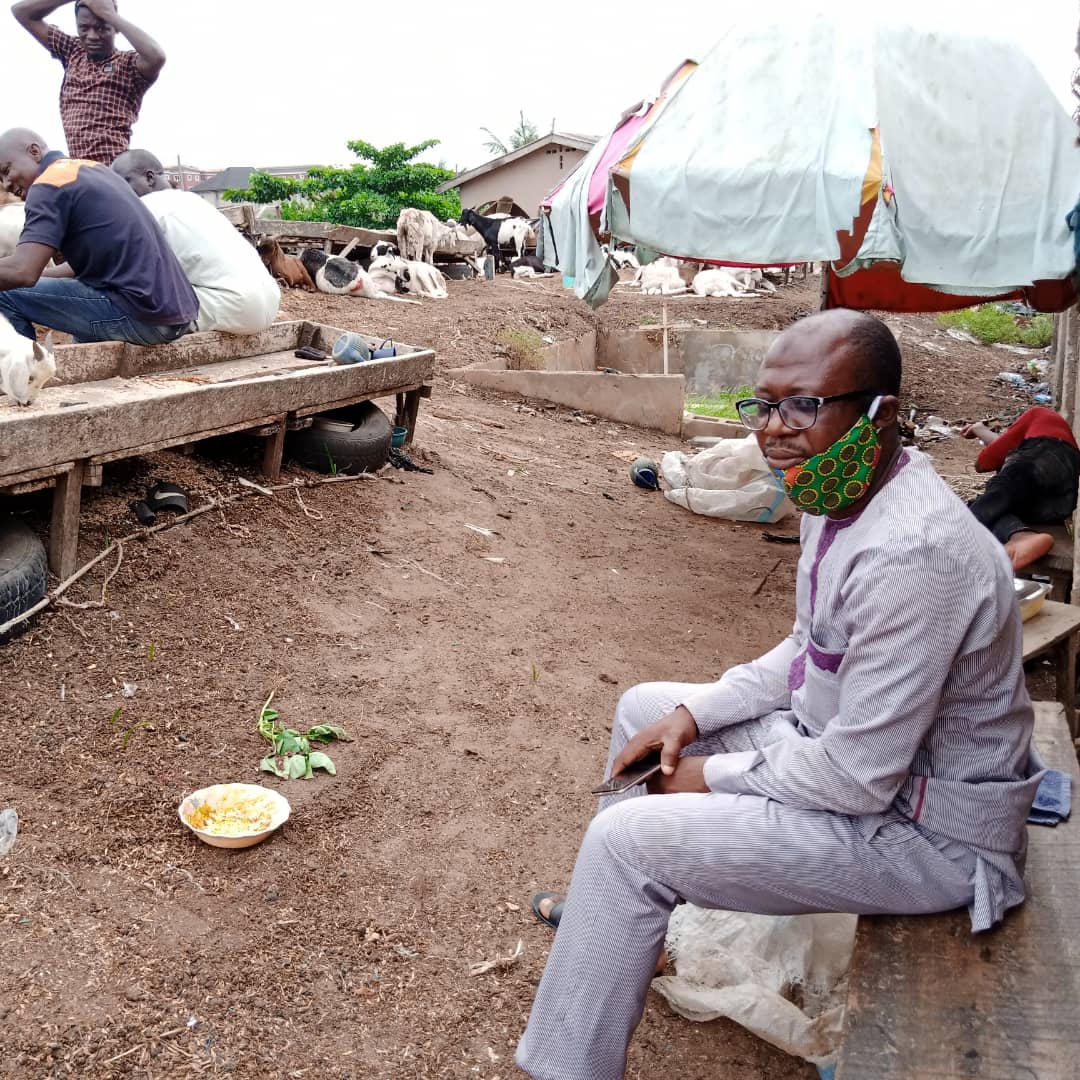
“If you had come here this time last year, you would have seen like 15 vehicles parked outside with their owners purchasing rams. But now look around, there is just one car owner buying ram. Sales are poor. There are so many rams available but people are not coming to buy them,” he said.
Advertisement
Ademuyiwa Bamidele, a ram buyer, lamented the high prices of goods. He told TheCable that the pandemic has affected consumers’ purchasing power and the ban on movement, as well as the huge costs incurred in the transportation of goods, have resulted in high prices, making things difficult for buyers.
“What we bought N20,000 last year is now more expensive as it is between N30,000 and N35,000. I was told it is because of the high cost of transportation from the initial destination down to Lagos, restriction of movement and extortion by security agents. As you can see, there is no encouraging patronage here. Tomorrow is Salah day. By now, this place should have been filled up with customers but no patronage at all,” he said.
Advertisement
CHICKEN VENDORS NEARLY RUNNING AT LOSSES
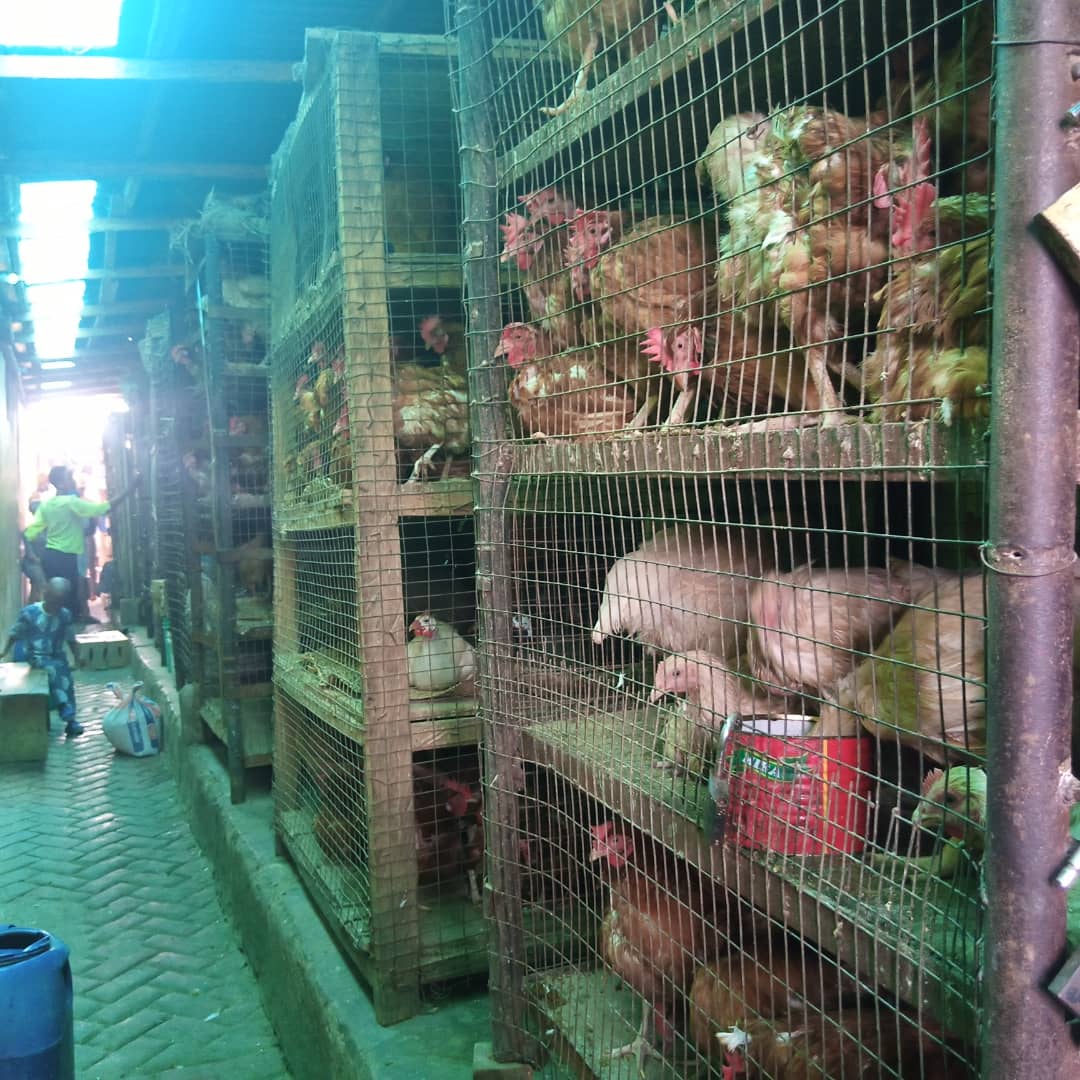
With moments of food and drinks to celebrate at hand, chicken vendors ought to be counting profits but unfortunately, many said they are running at a loss. Rahmat Olaoye, a chicken vendor at the Igando multipurpose market, said “things have turned upside down” as she now sells at prices lower than expected to customers. She said customers are bent on lowering prices due to insufficient funds, thereby increasing their strength to haggle and leaving for the next stand when they feel displeased.
Advertisement
Funmi Ajibola, another chicken vendor, said sales have reduced since markets no longer open regularly.
“Sales isn’t what it used to be like especially since we now open a day and stay at home the next day. And when we even open our shops, we close by 3pm, so it is hard getting customers,” she said.
Modupe Olaniyan, another seller, disclosed that some chickens suffer untimely death after they stay longer than expected in their cages .
OTHER TRADERS LAMENTED OVER POOR SALES
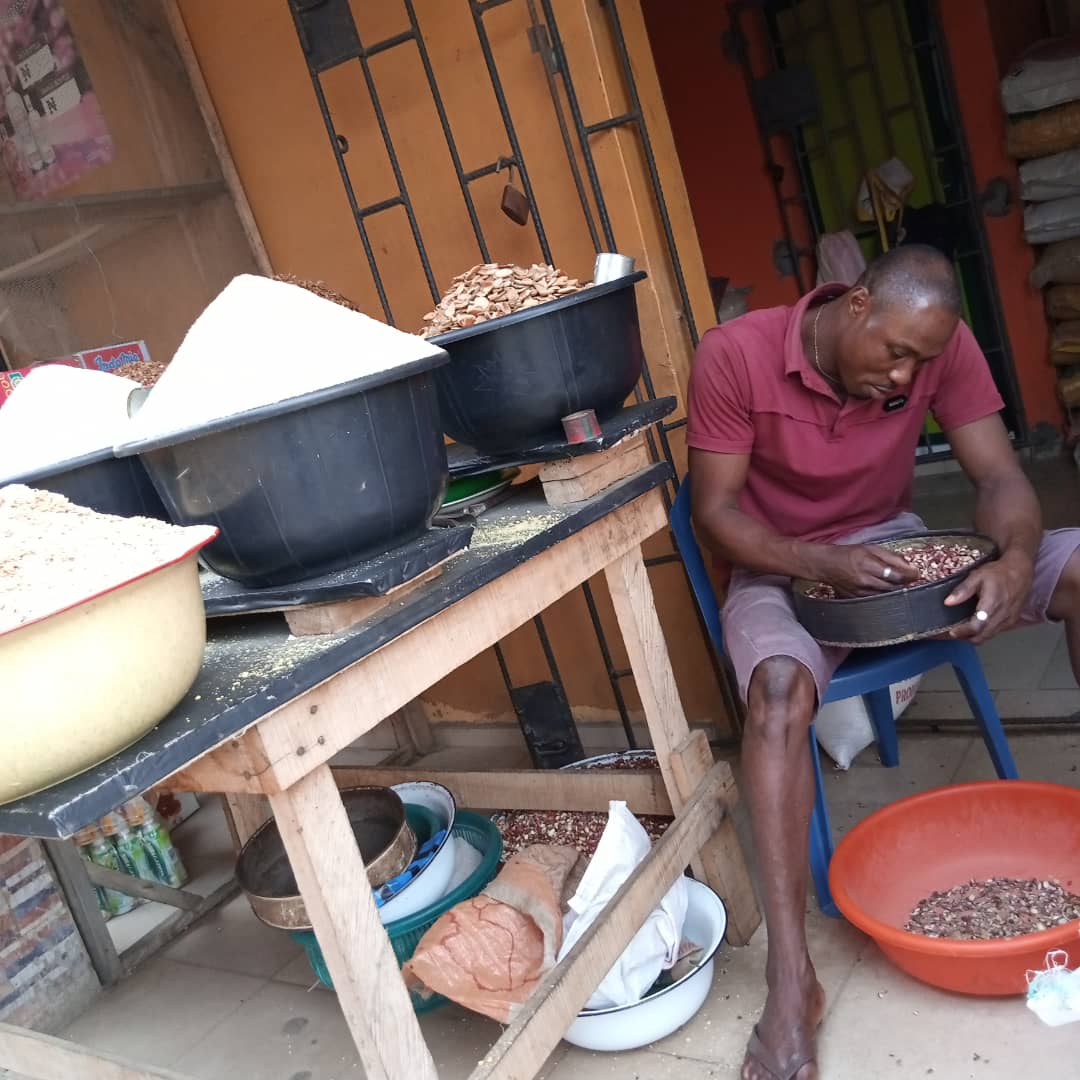
Traders of food and cloths also spoke in despair, lamenting poor sales. Basirat Azeez, an Ankara fabric seller along Isheri road, in Alimosho local government area, said the situation is so bad that there is no hope for recovery this year. She said matters have been made worse since her goods are imported from China where the pandemic originated. According to her, prices have risen to nearly 100%, adding that such was not the case in 2019.
Yusuf Garba, a trader who sells Islamic wears by the roadside in Ikotun, said patronage has been low despite the Eid celebration when people ought to patronise him.
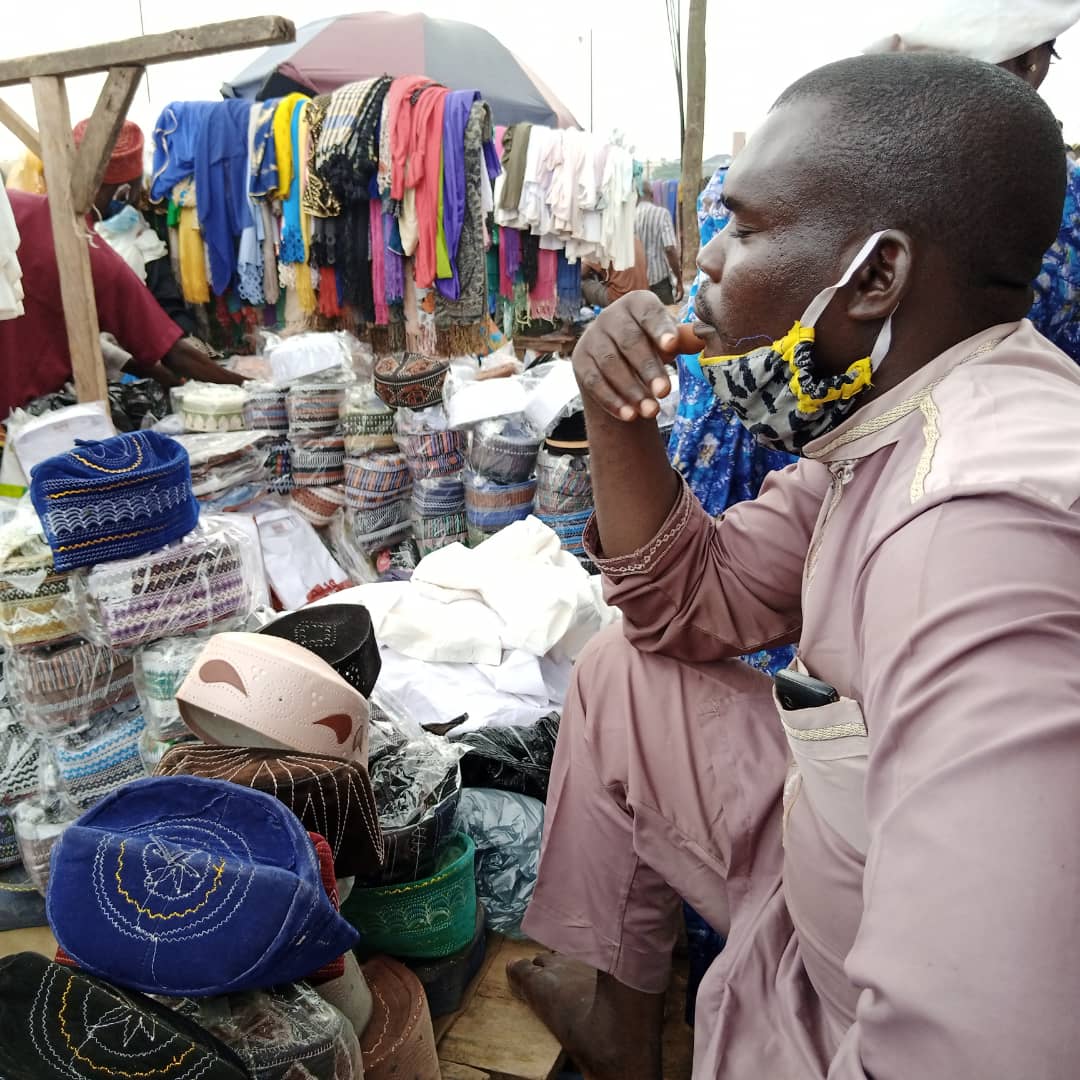
“Customers are not many like before. Last year, customers were many around me by this time. But now you can see there is no one here. Prices of goods have increased. The goods I used to buy for N2,500 is what I now buy at N3,500, so I have to sell it for 4,000,” he said.
Musa Isiak, another trader of Islamic items along Ijegun road, said he hasd decided to manage whatever the situation is as the pandemic has affected everything around him.
While Eze Chinedu, a food vendor, expressed hope that things will get better with time, he said the decision of the government to restrict movement, ban large gatherings, among other measures, is in the best interest of the people.
“Market is dull; there is nothing much there. But I know the government is doing it to safeguard our lives. For the Sallah, the most important is life. Every time isn’t Christmas. We can only pray that next year will be better than this. If we don’t sell today, we will tomorrow. For me, anything I sell, I thank God and go home,” he said.
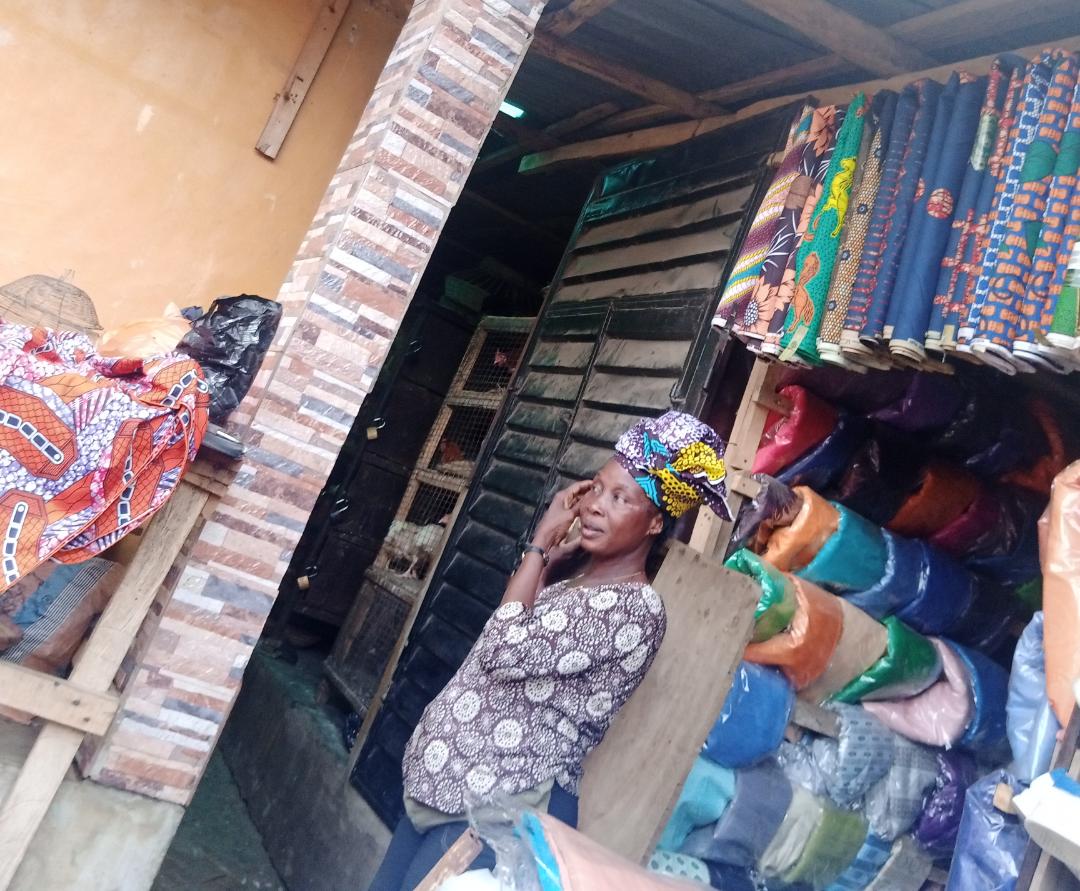
Ankara sellers awaiting buyers
With the pandemic, this year’s Eid-il-Fitr will be nothing more than an average day for many Nigerians. Distribution of food, congregational prayers, visitations, outings, among other activities popular during the period will be on a low scale, mostly indoors.
The Eid-il-Fitr of 2020 will forever be remembered for happening amid a global health crisis.
Add a comment
